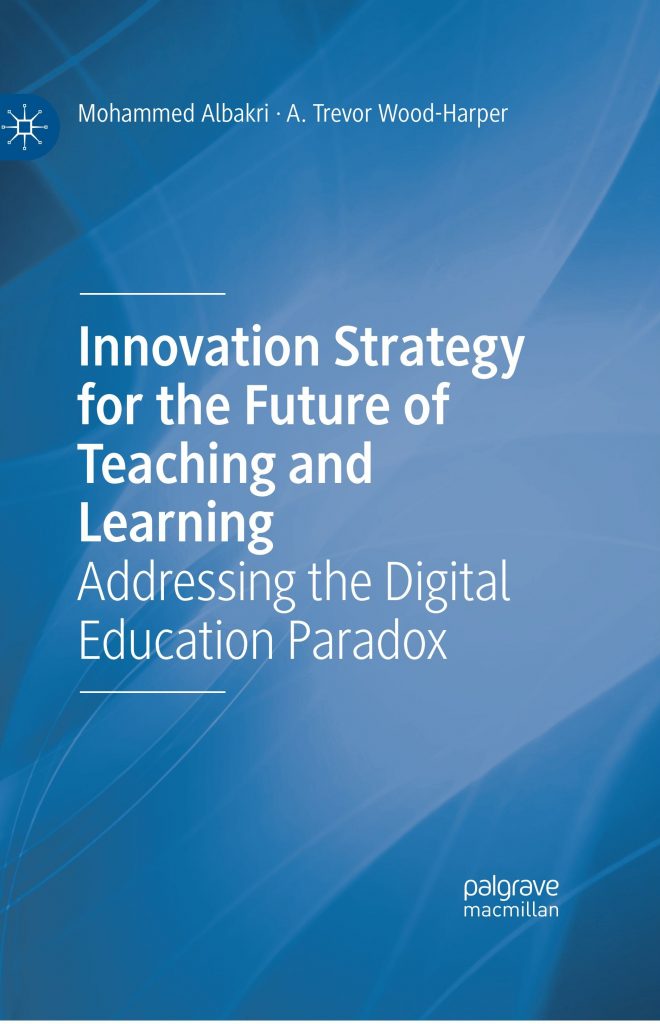Dr Mohammed Albakri, Programme Leader for Business Information Technology and Business Management with Innovation and Technology at Salford Business School, has co-authored a book alongside the late, Professor Trevor Wood-Harper.

Due to be released on the 11 June 2025, Innovation Strategy for the Future of Teaching and Learning: Addressing the Digital Education Paradox, helps bridge the gap between technological advancements and educational innovation, exploring the likes of AI (artificial intelligence), blockchain, cloud computing, IoT (internet of things) and immersive learning.
Building on insights shared in their previous books, the groundbreaking textbook identifies the current barriers within traditional education systems and how digital intelligence can be used as a vital resource for both scholars and students.
“With rapidly-evolving technologies disrupting the modern world, it would be imprudent to ignore the potential uses within educational settings. In the book, we dive deep into how these systems can provide leverage where current systems may restrict educational advancement,” explained Mohammed.
The textbook critically analyses real-life examples, identifying and addressing challenges such as the digital divide, cybersecurity, ethical AI and curriculum decolonisation, demonstrating how to create a balanced, accessible and future-ready education system that promotes global goals for sustainable and ethical digital practices.
“The future of the working world is becoming more and more reliant on digital innovation and so we need to adapt our services to keep up. This book not only covers the uses in teaching methods but also topics such as knowledge management, policy and ethics.
“By learning how to efficiently utilise contemporary technologies and incorporate them into our everyday teaching practises, educational services will be able to advance alongside the rest of the working world, to avoid risk of being left behind,” continued Mohammed.
This new textbook builds on Mohammed’s previous release, Perspectives on Digital Transformation in Contemporary Business, during which he provided guidance for students, educators, academic leaders, policymakers and business leaders on navigating the complex landscape of digital transformation in business.
Mohammed concluded: “The digital landscape is constantly evolving with new methods and technologies regularly being released. These technologies are reshaping our working lives and so it is crucial that the next generations are supplemented through these functions and operations to provide smoother transitions into modern workplaces.”
